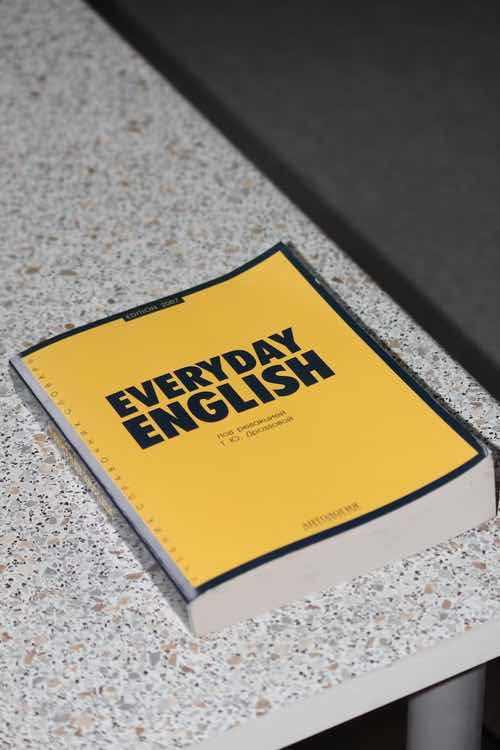As we embark on the delightful journey of exploring the world of languages, we inevitably find ourselves pondering a question of considerable importance: what languages are worth learning? The world is a linguistically diverse playground, teeming with over 7,000 languages. But for the curious minds and aspiring polyglots among us, the quest to uncover the most rewarding languages is akin to a treasure hunt for the intellect.
In this linguistic adventure, let’s dig into the treasure chest of languages, focusing on some of the most spoken languages in the world. While our choices are like gems in a minefield of options, they come with their own glitter and allure. So, fasten your seatbelts and let’s embark on this thrilling journey.
English: The World’s Global Currency
Our expedition into the world of languages takes off with a bang as we encounter the global behemoth of communication – English. With a staggering number of speakers worldwide, English is like the ubiquitous currency of the linguistic world. It’s not just a language; it’s a bridge connecting nations and cultures.
The pros of learning English are many: it opens doors to international job opportunities, facilitates travel, and provides access to a wealth of information and entertainment. Yet, the cons can’t be overlooked. The intricacies of English grammar and pronunciation can be baffling. But the journey of mastering English is like sailing through rough seas to reach the shores of a diverse, exciting world.

French: The Language of Love and Diplomacy
Like a fine wine, the French language is rich, nuanced, and often associated with romance. It’s the language of love, art, and diplomacy. French possesses a unique charm that’s impossible to resist.
When you learn French, you’re diving into a sea of cultural treasures. It unlocks the poetry of Victor Hugo, the philosophy of Descartes, and the culinary artistry of French cuisine. But don’t be fooled by its elegance; French can be a complex mistress, with intricate grammar and pronunciation that may leave you in a state of linguistic intoxication. Here are some more reasons why you should learn French.
Spanish: A Fiesta for Your Tongue
If you’re looking for a language with a dash of flair and a zest for life, Spanish is your go-to choice. Spanish is not just a language; it’s a fiesta that tantalizes your taste buds and keeps you dancing to its rhythms.
The pros are abundant. Spanish is the second most spoken language in the world, making it invaluable for travelers and business enthusiasts. But watch out for the rolling “Rs” and regional variations. Like a well-prepared paella, it takes time to get Spanish just right.
Mandarin: The Key to the East
As we navigate through the world of languages, we reach the vast realm of Mandarin Chinese. Mandarin’s script alone is a work of art, a labyrinth of characters that house a treasure trove of culture and history. With over a billion speakers, it’s the key to understanding the East.
The pros of learning Mandarin are substantial. It opens doors to a world superpower, a booming economy, and an ancient civilization. However, the journey can be like a complex puzzle. Mastering the tones and characters can be a formidable task, but the reward is delving into one of the most fascinating cultures on Earth.
Arabic: The Language of History and Diversity
Arabic is a gateway to a world where history, religion, and diversity converge. It’s a language that unearths the mysteries of the Middle East and beyond.
Learning Arabic is like unlocking a treasure chest of stories, from the tales of One Thousand and One Nights to the poetry of Rumi. It’s a journey of resilience, given its intricate script and dialectal variations. But it’s also an entry into a world of diverse traditions and breathtaking landscapes.
German: Precision and Innovation
If you’re inclined toward precision and innovation, German might be the choice for you. With its reputation for engineering and scientific advancements, German is like a sturdy tool in your linguistic toolkit.
Pros include access to a robust job market and a penchant for efficiency. Yet, it has its linguistic quirks, such as compound words that seem to stretch to infinity. Learning German is like building a sturdy bridge between cultures, where precision and creativity walk hand in hand.
Japanese: A Portal to the Future
With its unique mix of tradition and cutting-edge technology, Japanese is like a portal to the future. It’s the language of anime, sushi, and Zen philosophy.
Learning Japanese opens the door to innovation and precision, akin to the art of sushi making. However, the writing system, which combines kanji, hiragana, and katakana, can be an intriguing labyrinth. The journey of mastering Japanese is like delving into a realm where the past and future coexist.
Portuguese: The Gateway to Two Continents
Portuguese is the gateway to two continents, Europe and South America, and like a mosaic, it connects cultures and landscapes. It’s a language of diversity and warmth.
Learning Portuguese offers access to a rich tapestry of cultures, from the vibrant rhythms of Brazil to the historical charm of Portugal. Its pronunciation may seem tricky at first, but once you ride the waves of its melody, you’ll find it enchanting. Learning Portuguese is like embarking on a journey that takes you from the cobbled streets of Lisbon to the sandy shores of Rio de Janeiro.
In Conclusion
As our linguistic expedition comes to an end, the question of which languages are worth learning is like a colorful tapestry. Each language is a thread, adding its own unique hue to the canvas of your life. The pros and cons of each language are like different strokes in a masterpiece, forming a picture of your experiences, interests, and aspirations.
Ultimately, the choice of which language to learn depends on your personal journey. The language you select is like a compass, guiding you through the uncharted territories of culture, history, and communication. Whichever language you choose, it’s a path to new worlds and unforgettable experiences, a key to unlock the treasures of human expression. So, go forth and embark on your linguistic adventure; the world is waiting to be discovered through the prism of language.

